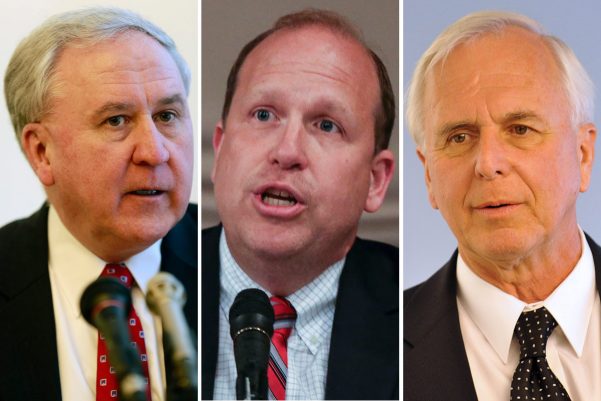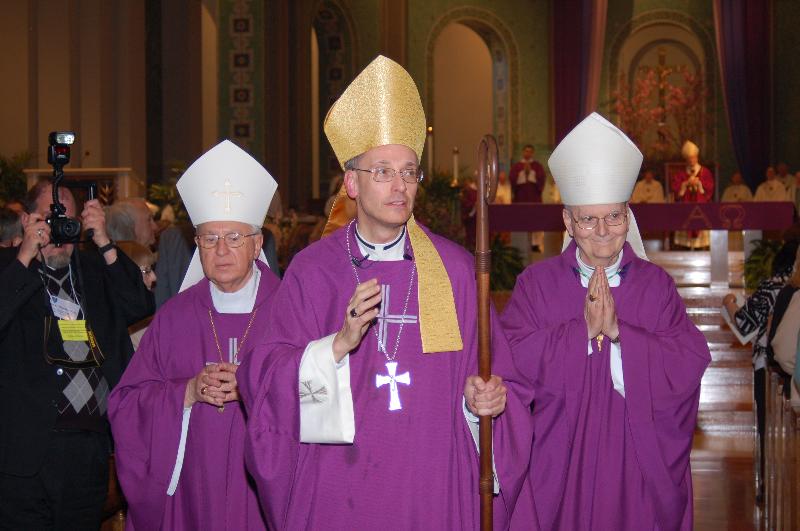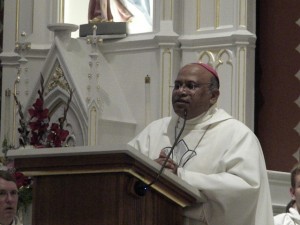
Rep. Thomas Caltagirone was disgusted. The veteran Democrat from Reading had been one of the Catholic Church’s staunchest political allies for years, but by March he had hit a breaking point.
A state grand jury had exposed clergy sex abuse in the Altoona-Johnstown Diocese and a bishop who used an internal payment chart to dole out money, correlating to the degree of the victim’s abuse. This, after Jerry Sandusky and two damning grand jury reports in a decade about predator priests in Philadelphia.
Then came another grand jury bombshell from Attorney General Kathleen G. Kane: Leaders in the Franciscan order had allegedly enabled a friar to abuse scores of children at a Catholic high school in Johnstown and remain free to roam as recently as January 2013.
“Enough is enough,” Caltagirone told his colleagues the day Kane announced charges. “We need to enact new laws that will send the strongest message possible: If you commit heinous crimes against children, if you cover up for pedophiles, if you lurk in the shadows waiting for time to run out, we are coming for you.”
His proclamation marked an unexpected shift from a key legislator long resistant to changing the law. It helped persuade others to pass a House bill that for the first time would let victims abused decades ago sue their attackers and institutions that supervised them.
Now the fate of the measure rests with three influential senators, all from Montgomery County. As they return to session Monday, they largely control whether it lives or dies.
“They have a decision to make,” said Rep. Mark Rozzi (D., Berks), an abuse victim himself and the bill’s fiercest advocate: Support the bill as it stands or, he warned, or “be seen as protecting pedophiles and the institutions that protect them.”
None of the senators – Republicans Stewart Greenleaf and John Rafferty, and Democrat Daylin Leach – would commit himself last week to supporting or opposing the bill.
Greenleaf, chairman of the Senate Judiciary Committee, said that he would consider holding a hearing or drafting amendments within two weeks and that the measure could come before the full Senate next month.
“It’s a bill that I would like to support,” he told the Inquirer.
For years, the Catholic Church has vigorously fought efforts to do what Caltagirone urged: make the civil statute of limitations retroactive. The church argues that that would prompt a flood of new claims by middle-age victims that could bankrupt parishes.
As the debate heads to the Senate, the church’s legislative arm, which has more than 40 registered lobbyists, is again engaged.
“This is a very serious issue that could have devastating consequences for Pennsylvania’s three million Catholics, who today worship, educate their children, receive health care, and care for the poor through the parishes, schools, and ministries that will be impacted by this legislation,” Amy Hill, a spokeswoman for the Pennsylvania Catholic Conference, said Thursday.
Insiders said the church’s efforts in the House were drowned out by the revelations of abuse in Johnstown-Altoona. Horrified by the disclosures, Christopher Winters, chief of staff to Caltagirone, said some longtime defenders of the church felt betrayed.
“The grand jury report portrayed something completely different than what we were told sitting at the table with lobbyists for the Catholic Conference,” he said. “That they were handling things.”
A repeated push
Then-Philadelphia District Attorney Lynne M. Abraham first called for an expanded civil statute in 2005, after her office’s grand jury probe into the Philadelphia archdiocese.
Investigators documented decades of abuse and predator priests shuffled among parishes. Most victims were barred by the statute of limitations from pursuing civil lawsuits, something the Abraham grand jury recommended should change.
Her successor, Seth Williams, repeated the call after a similar grand jury investigation in 2011. So did last month’s grand jury report on abuse in the Altoona-Johnstown Diocese and the criminal case against the friars.
Advocates say broadening the window for lawsuits would dissuade institutions from mishandling or concealing crimes against children while also giving victims a sense of closure and justice. Indeed, several other states have passed such laws in the wake of the national clergy abuse scandal.
The current law, which took effect in 2002, gives victims of child sex abuse in Pennsylvania until they are 30 to sue their attackers. The window to bring criminal charges extends until they turn 50, a change made in 2006.
The bill approved April 12 by the House would eliminate the timetable for criminal cases and extend the civil statute 20 years, until victims turn 50. It would also allow them to file for past abuse.
Rozzi, elected in 2013 on a pledge to change the law, spent a year trying to get support for the bill he introduced last year.
The Altoona probes provided a supercharge.
On March 1, a grand jury disclosed that prosecutors, police, and others looked the other way as allegations were brought to their attention in the Rust Belt diocese. Bishops allegedly ignored or hid decades of abuse against hundreds of children.
Rozzi demanded meetings with leaders in the Republican-led House. According to Rozzi, his message was succinct: “We’re going full guns blazing. We’re not backing down.”
On March 14, he led a Capitol rally with Kane and others to demand changing the statute. The next day, after Kane announced charges against three Franciscan leaders near Altoona, Rozzi said he put a hard sell on Caltagirone.
What, Rozzi said he asked his fellow lawmaker from Reading, did he want his legacy to be?
That afternoon, Caltagirone ordered his staff to issue the statement that rocked the Capitol.
John Salveson, an abuse survivor and reform advocate from Wayne, recalled reading it over and over. He had long seen Caltagirone as intractable on the issue. He read the statement incredulously, wondering, “Who are you? And what have you done with Tom Caltagirone?”
Caltagirone was unavailable last week to discuss the bill. But Winters, his longtime aide, and others said his statement proved persuasive with others in the House.
One was Judiciary Committee Chairman Ron Marsico (R. Dauphin), another lawmaker advocates considered a roadblock. Marsico’s committee was the gateway for the legislation. The bill could not move to the full House without his approval.
On April 4, Marsico introduced a bill that got things rolling.
According to Rozzi, he got words of support that day from Speaker Mike Turzai (R., Allegheny) on the House floor. “Whatever direction you go in, I’m following you,” Turzai told him discreetly, Rozzi said. “We’re doing this.”
Turzai declined an interview request.
Eight days later, the House passed the bill on a 180-15 vote, sending it to the Senate.
An uncertain fate
In an interview last week, Greenleaf shared his own reaction to the horrors outlined in both recent grand jury reports.
“The facts are terrible,” the Willow Grove Republican said. “The facts are not defensible.”
Still, he would not say if he supported the retroactive civil lawsuit provision, even in theory. He said he wanted to examine questions of whether it would be constitutional to allow old abuse cases to be litigated.
The stakes may be higher for his committee vice chairman, Rafferty. Rafferty is the GOP nominee for attorney general, seeking to take over a job in which he would be expected to root out crime and protect its victims.
During an interview at his Collegeville office last week, he called the recent grand jury findings “very disheartening.”
But he was cautious about the bill.
“From a policy standpoint, I support the need for retroactive application of the statute of limitations,” Rafferty said Thursday. “I have a duty to carefully review the constitutional implications of the amended bill as it passed the House.”
In a follow-up email on Friday, Rafferty wrote that he looked forward to examining those issues at a hearing Greenleaf intended to call.
(An aide to Greenleaf would not confirm that such a decision had been made.)
Leach, the committee’s ranking Democrat, was equally noncommittal. The topic has been bandied about the Capitol for a decade, but Leach said he had to learn more.
“What do other states do?” he said last week. “What is the best way to handle this that’s fair to everybody?”
Complete Article HERE!




